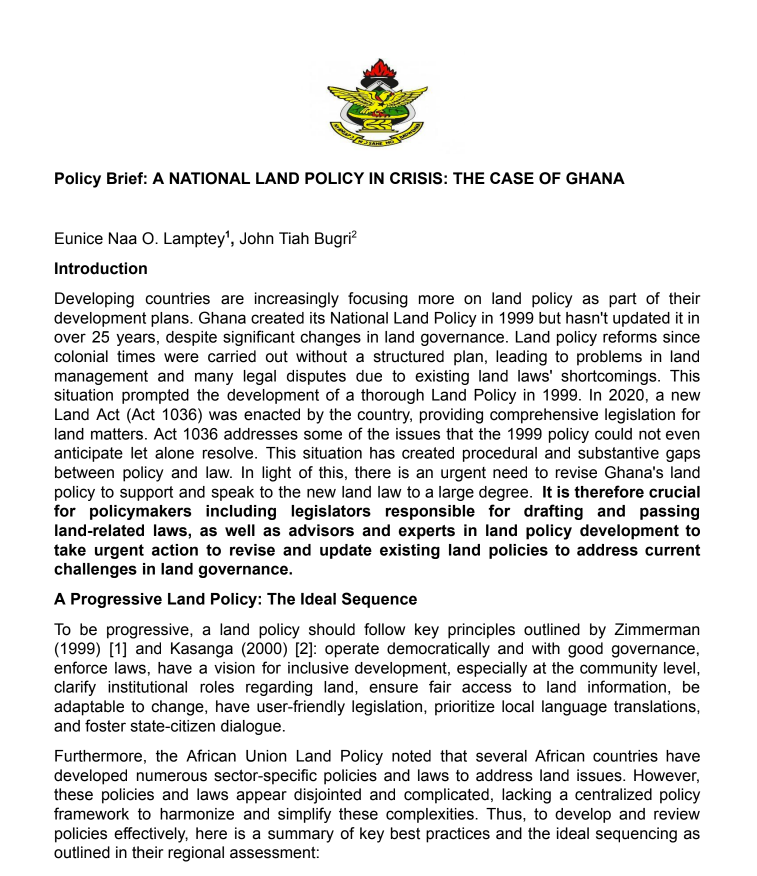Resource information
Developing countries are increasingly focusing more on land policy as part of their development plans. Ghana created its National Land Policy in 1999 but hasn't updated it in over 25 years, despite significant changes in land governance. Land policy reforms since colonial times were carried out without a structured plan, leading to problems in land management and many legal disputes due to existing land laws' shortcomings. This situation prompted the development of a thorough Land Policy in 1999. In 2020, a new Land Act (Act 1036) was enacted by the country, providing comprehensive legislation for land matters. Act 1036 addresses some of the issues that the 1999 policy could not even anticipate let alone resolve. This situation has created procedural and substantive gaps between policy and law. In light of this, there is an urgent need to revise Ghana's land policy to support and speak to the new land law to a large degree. It is therefore crucial for policymakers including legislators responsible for drafting and passing land-related laws, as well as advisors and experts in land policy development to take urgent action to revise and update existing land policies to address current challenges in land governance.
Suggested citation:
Lamptey, E. N. O., Bugri, J. T. 2024. Policy Brief: A National Land Policy in Crisis: The Case of Ghana. Kwame Nkrumah University of Science and Technology (KNUST), Ghana.

